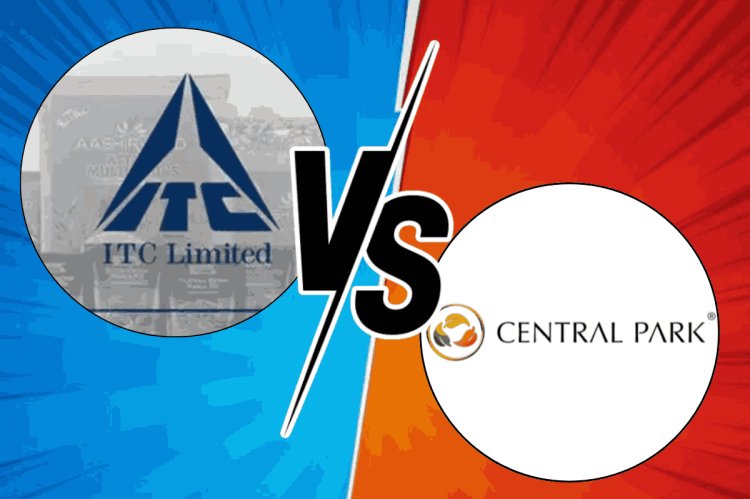ITC Limited v. Central Park Estates (P) Ltd., 2022
This case study revolves around the legal battle between ITC Limited, a prominent Indian hospitality conglomerate, and Central Park Estates regarding the unauthorized use of the trademark "BUKHARA" for a restaurant. ITC Limited claimed that Central Park Estates infringed upon its trademark by using a similar name, logo, and overall theme for their establishment. The court recognized the well-established reputation of ITC Limited's "BUKHARA" mark, both nationally and internationally, and declared it a well-known trademark under Indian law. The ruling underscores the significance of safeguarding well-known trademarks and sets a precedent for the protection of intellectual property rights in India.

ITC Limited v. Central Park Estates (P) Ltd., 2022
SCC Online Del 4132,
Decided on 14-11-2022
Background
The plaintiff began its hospitality business in 1975 and grew to be one of India's leading private sector companies. They had operations in diverse sectors such as Fast-Moving Consumer Goods (FMCG), Hotels, Paperboards and Packaging, Agri-Business, and Information Technology. In the late 1970s, the plaintiff adopted the mark 'BUKHARA' for its restaurant at ITC Maurya Hotel. This restaurant was known for its unique interiors, décor, layout, arrangement, cutlery, wooden menu cards, and rustic look, which remained consistent over the years. The plaintiff had also maintained websites such as www.itcportal.com and www.itchotels.in, which provided information about the plaintiff's hotel business in India and across the world, and reflected the use of the trademark 'BUKHARA' by the plaintiff. The mark 'BUKHARA' was registered in India since 1985 in both word form and logo form. The plaintiff claimed that 'BUKHARA' had become a well-known trademark.
Arguments on behalf of the Plaintiff
The plaintiff was upset that the defendants had used the name 'BALKH BUKHARA' for their restaurant. The plaintiff found out about this in 2022, and discovered that the defendants had registered the marks 'BALKH BUKHARA RESTAURANT' and 'BALKH BUKHARA' logo, both on a proposed to be used basis. The plaintiff conducted an investigation and found out that the defendants had copied everything from the plaintiff's 'BUKHARA' restaurant, including the name, logo, font, interior design, seating style, staff uniform, bib/apron, utensils, wooden menu, and overall appearance of the restaurant. Even the logo and font were identical. The plaintiff reserved the right to take legal action against the defendants for copyright infringement of its artistic work, which included the 'BUKHARA' design. The plaintiff also requested the rectification of the defendants' registered marks under Section 57 of the Trade Marks Act, 1999.
Argument on behalf of the Defendants
During the legal proceedings, the counsel representing the defendants put forth a statement. They stated that the defendants had no intention of using the trademark 'BALKH BUKHARA' or any other designation that includes the term 'BUKHARA' for their hotel, restaurant, or any other hospitality-related services. Additionally, the counsel submitted that the defendants had no objections to the court's decision if the suit was decreed in favour of the plaintiff.
Court Decision
The court ruled that the plaintiff's documents showed that the "BUKHARA" mark was intrinsically linked to Indian cuisine and that the plaintiff's restaurant was recognized internationally as a customary stop for foreign celebrities and dignitaries. The reputation and global recognition earned by the plaintiff's "BUKHARA" mark was well-established, and the plaintiff had effectively internationalized India's cuisine. Although the US court had previously ruled against the plaintiff in ITC Ltd. v. Punchgini, Inc., 552 US 827 (2007), the Indian court held that the US judgment would not be applicable in India. This was because the record showed that the "BUKHARA" mark originated in India and enjoyed substantial goodwill and reputation not only among Indians but also among foreigners who travel to India. As a result, the court declared the "BUKHARA" mark as a well-known mark under Section 2(zg) read with Section 11(2) of the Act, and directed the Registrar of Trade Marks to add the "BUKHARA" mark to the list of "well-known trademarks".
Court Analysis
The ITC Limited v. Central Park Estates court case highlights the importance of protecting well-known trademarks. The court declared the "BUKHARA" mark as a well-known trademark, emphasizing the need for safeguarding such marks from infringement. The ruling also reinforces the principle that judgments from foreign courts may not always be directly applicable in India. The case sets a precedent for the protection of well-known trademarks in India and reaffirms the commitment of Indian courts to uphold and safeguard the rights of entities that have meticulously built and maintained the reputation of their trademarks over the years.












